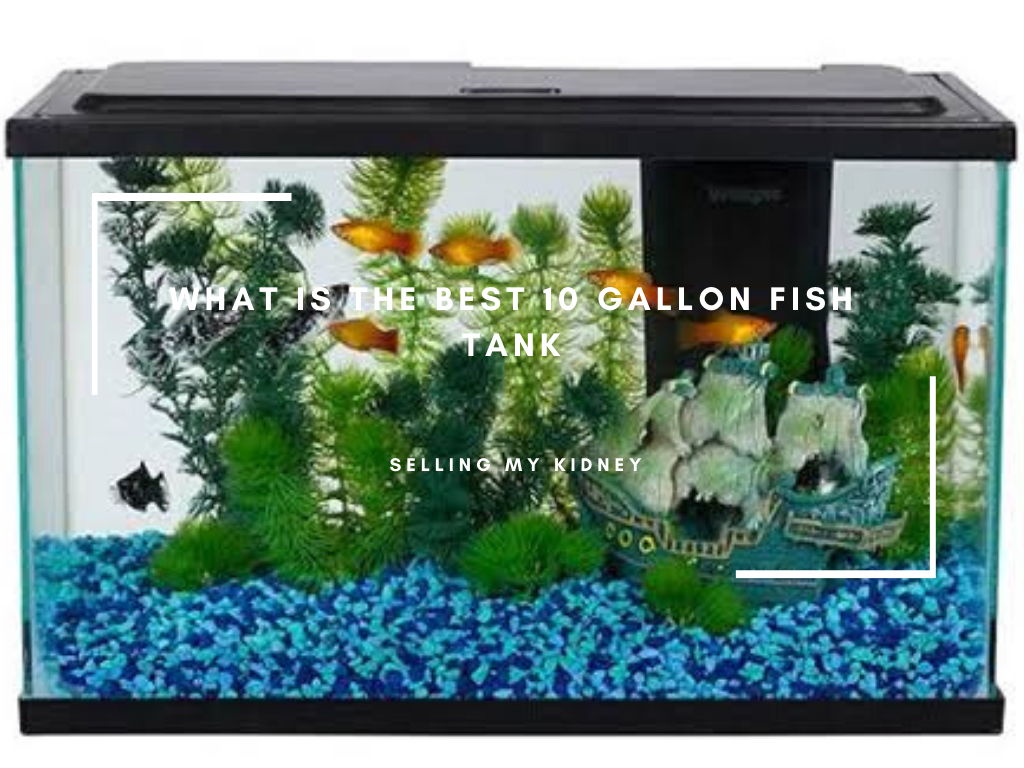Angelfish are beautiful, exotic fish that can live for many years.
They have a lifespan of up to 10-15 years in captivity and even longer if they’re well cared for!
Angelfish come in various colors, such as black, silver, gold, and blue; some also feature stripes or spots on their bodies.
These graceful creatures require special care, including clean water, the right pH balance and temperature levels, and plenty of hiding places to feel safe from predators.
With proper nutrition like high-quality flakes or pellets plus regular tank maintenance, these amazing animals will thrive happily for many years – making them an ideal pet choice!
In my opinion, angelfish make wonderful additions to any aquarium. That’s due to their stunning appearance combined with their long life expectancy.
It’s no wonder why people love having them around!
How Long Do Angelfish Live In Captivity?
Angelfish are popular aquarium fish and can live for many years in captivity.
On average, angelfish will live between 5-10 years when kept properly.
However, some have reached 15 or even 20 years of age!
To make sure that your angelfish lives as long as possible:
- Provide them with clean water; change 25% every week.
- Feed high-quality food that is rich in vitamins & minerals
- Keep the tank temperature at 75°F – 82°F (24°C – 28 °C)
- Avoid overcrowding by providing plenty of space per fish.
- Regularly check pH levels and keep them stable.
- It’s also important not to overfeed your angelfish since this could lead to health problems which may shorten their lifespan.
With proper care and attention, you should be able to enjoy these beautiful creatures for many happy years!
How Long Do AngelFish Live In A Tank?
Angelfish can live in a tank for up to 10 years.
They are hardy and adaptable, so they do well with the right care.
To ensure your angel fish survive for a long period:
- Provide them with clean water; change 25-50% of their water every week or two weeks, depending on how many other inhabitants you have in the tank.
- Feed them high-quality food specifically designed for tropical aquariums, such as flakes, pellets, frozen foods, etc.
- Twice daily but only what they will consume within 2 minutes each time. Overfeeding leads to poor health and shorter life spans!
- Keep an eye out for signs of disease like white spots (ich) or fin rot. Those diseases could be caused by stress from overcrowding/poor diet/water conditions. If caught early enough, these issues can usually be treated successfully without too much harm done to your beloved pet’s lifespan!
In addition, make sure there is plenty of hiding places available throughout the entire length & width of your aquarium setup, including plants & rocks where angels feel safe when resting during daylight hours since this helps reduce stress levels significantly, thus increasing longevity even further.
Finally, don’t forget regular maintenance tasks like cleaning filters regularly plus checking pH balance often because both play important roles towards keeping healthy, happy angelfish who should then enjoy longer lifespans than those kept under less ideal circumstances 🙂
How Long Do Angelfish Live In The Wild?
Angelfish are popular aquarium fish but can also be found in the wild.
In their natural habitat, angelfish typically live for about 5-7 years.
However, with proper care and nutrition in captivity, some species of angelfish have survived up to 10 or even 15 years!
For an angelfish to reach its full lifespan potential, it needs:
- A large tank (at least 20 gallons) that is well-filtered and heated;
- Plenty of hiding places, such as rocks or plants;
- Nutritious food like flakes/pellets specifically designed for tropical fish;
- Regular water changes every two weeks using dechlorinated tap water.
It’s important not to overcrowd your tank when keeping multiple angelfish together since this could lead them into territorial disputes, resulting in injury or death if left unchecked by the owner.
Additionally, you should avoid introducing aggressive species into the same environment as these peaceful creatures because they won’t stand a chance against more dominant predators!
Lastly, ensure plenty of oxygen circulating throughout so all inhabitants get enough air supply at all times – otherwise, suffocation might occur quickly due to lack thereof over time.
How Long Can Angelfish Go Without Food?
Angelfish can go without food for quite a long time.
Generally, they will survive up to two weeks without food!
However, this is not recommended as it puts them under stress and weakens their immune system.
It’s best to feed your angelfish regularly:
- Once every day or two days;
- A variety of foods such as flakes, pellets, and frozen/live treats like brine shrimp;
- Only enough that the fish eat in 2-3 minutes. Any leftovers should be removed from the tank afterward.
This helps keep water quality high which keeps your angel healthy too!
Additionally, if you plan on going away for an extended period (more than one week), consider getting an automatic feeding device so that your angels get fed even when you’re gone.
With proper care and regular meals provided by responsible owners – Angelfish can live happily ever after!
How Can You Tell How Old An Angelfish Is?
An angelfish’s age can be determined by size, coloration, and behavior.
Size
Angelfish grow quickly in the first year of their life; they reach a length of about 4 inches after one year.
After that, growth slows significantly, so if an angelfish is larger than 4 inches, it may be older than 1 year old.
Coloration
As angel fish get older, their colors become more vibrant and intense with time. For example, young angels are usually silver or gray, while adults have bright blues, yellows, and oranges on them!
Behavior
Older angel fish display different behaviors, such as swimming around faster or being less shy than younger ones – this could also indicate how old your angelfish might be!
Finally, you should consider other factors like environment (if kept in captivity), which could also affect the rate of aging.
How To Improve Angelfish Longevity?
Improving the longevity of angelfish is possible with a few simple steps.
- Provide them with clean water and an appropriate tank size for their species; this will help keep them healthy and happy.
- Feed your high-quality fish food with all the essential nutrients needed to stay strong and active.
- Maintain good aquarium hygiene by regularly cleaning out debris from the substrate or gravel bed and removing any uneaten food particles to prevent bacterial growth, which can harm your fish’s health over time.
- Ensure adequate lighting so that photosynthesis occurs within plants living inside the tank. This helps create oxygen levels necessary for the long-term survival of both plant life & aquatic creatures like angelfish!
Which Lives Longer? Male Or Female Angelfish?
Male and female angelfish have long lifespans, but some differences exist.
Generally speaking, male angelfish live longer than females; they can reach up to 10 years of age, while the average lifespan for a female is 8-9 years.
However, this depends on several factors, such as:
- Diet – A healthy diet with plenty of vitamins and minerals will help keep an angelfish in good health throughout its life span.
- Water Quality – Clean water that has been properly filtered helps maintain optimal conditions for fish to thrive in their environment, which increases longevity.
- Tank Size – Larger tanks provide more space for swimming around. So it’s important not to overcrowd your tank when housing multiple angels together, or stress levels may increase. That can lead to shorter lives due to poor health from lack of exercise/activity opportunities!
Overall, males tend to outlive females by about 1-2 extra years if all other variables remain constant (diet quality, etc.).
This could be because males typically grow larger sizes compared to what most females do.
Thus allowing them access to better resources like food sources easier over time since size also matters here.
It competes amongst each other during feeding times, especially if limited amounts exist at any given moment!
Wrapping up: How Long Do Angelfish Live?
In conclusion, Angelfish are a beautiful and interesting species of fish that can live for many years.
They have an average lifespan of 5-10 years in captivity when given the proper care they need to thrive.
With good nutrition, clean water conditions, and regular tank maintenance, their life expectancy could be even longer!
These majestic creatures make wonderful additions to any aquarium if you’re willing to provide them with the best possible environment so they may enjoy a healthy and happy life span.




